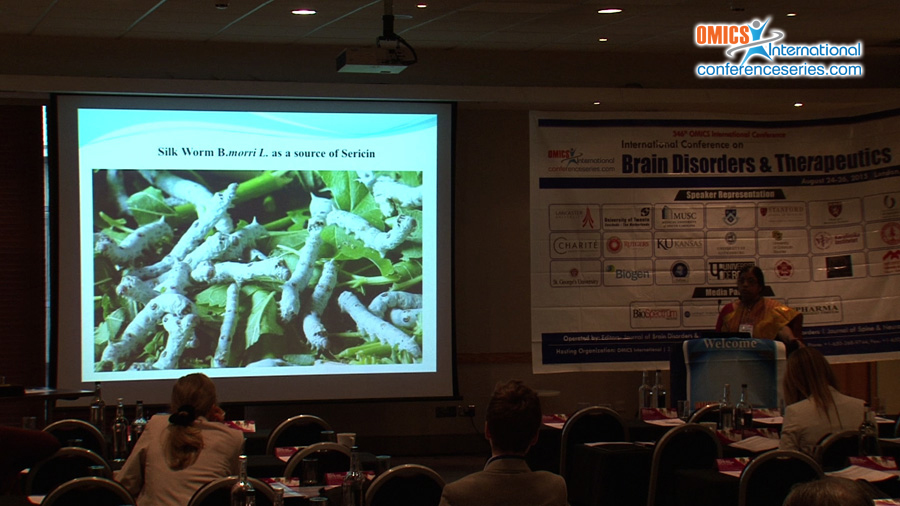
Kuna Yellamma
Sri Venkateswara University, India
Title: Evaluation Of Neuroprotective Effect Of Silk Protein, Sericin In Alzheimer\'s Disease Induced Rat Brain
Biography
Biography: Kuna Yellamma
Abstract
Alzheimer\'s disease (AD) is a neurodegenerative disorder mainly occurs in the older people. The pathological hallmark of AD is characterized by the progressive loss of basal forebrain cholinergic neurons that innervate the hippocampus and cortex. Accumulation of extracellular of amyloid-β and intracellular tau protein in brain leads to cognitive impairments. In the present study the rats were injected (I.P.) with D-galactose (D-gal) for 6 consecutive weeks to induced AD characters. The experimental rats were subjected to Morphometric, Learning & Memory efficiency by using Morri water maze test and to investigate neuroprotective activity of the silk Protein, Sericin on Alzheimer’s induced rat. The rats were orally treated with extracted silk protein, Sericin from B. Mori., cocoons. The biochemical changes in Ach and AChE level and Histological pathological changes were observed in selected brain regions. The results of Morphometric, Learning and Memory efficiency, Ach and AChE level and Histological changes revealed that Sericin could reverse the D-Gal induced AD damage in neurons of Cortex and Hippocampus regions and enhances the Learning and Memory efficiency in AD induced rats. From all these findings, it was finally concluded that, Silk Protein, Sericin may be use as a potential cognitive to treat Alzheimer’s Disease.
Speaker Presentations
Speaker PDFs
Speaker PPTs Click Here




